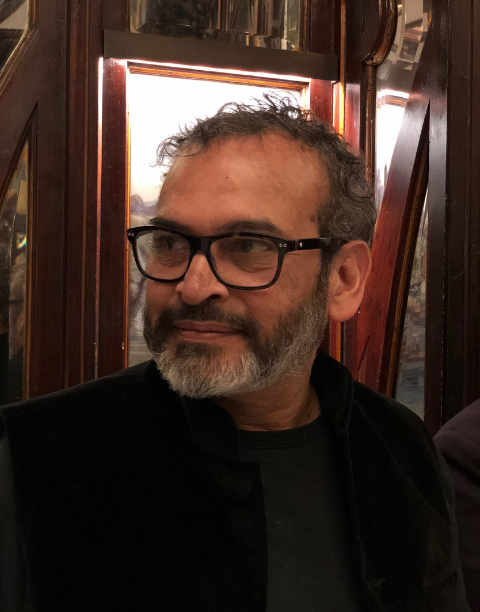
2018
CURATOR
Subodh Gupta’s sculpture incorporates everyday objects ubiquitous throughout India- steel tiffin boxes, thalis, bicycles, milk pails. His works investigate the transformational power of the everyday in terms of these mundane items, reflecting on the transformation of his homeland. Gupta has long explored the effects of cultural translation and dislocation through his work, demonstrating art’s ability to transcend cultural and economic boundaries. His ideas have taken shape in a variety of different media, from film, video and performance to steel, bronze, marble, and paint, which Gupta employs for both their aesthetic properties and as conceptual signifiers. In recent years Gupta has shifted his attention from mass produced stainless steel objects to found objects. He is fascinated by the traces left on these objects by their previous owners, turning them from inanimate utensils into items charged with stories of lives lived, visualised by scratches and dents. Before his education as a visual artist, Gupta, who is passionate about film, was a street theater actor. The artist’s change of residence from his native village to a major urban center is in a way an allegory of today’s India. The growing middle class that migrated from villages to large cities is eagerly clearing the path for change and the dominance of global capitalist culture. Gupta is interested in what inevitably disappears in the process of such change.
“The curator stepped down from their role on December 2018 due to prevailing circumstances”
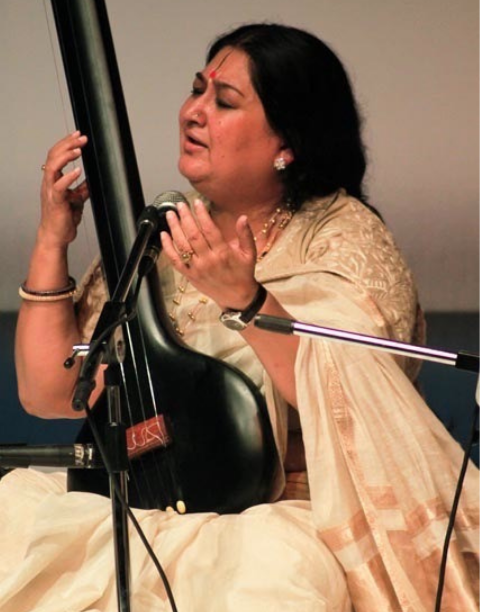
2018
CURATOR
Shubha Mudgal has been trained by some of the finest musicians and musicologists in India. Born into a musically-dedicated family and trained by eminent scholar-musician-composer Pandit Ramashreya Jha ‘Ramrang’, she also received guidance from Pandit Vinaya Chandra Maudgalya and Pandit Vasant Thakar. She later learnt stylistic techniques from maestros Pandit Jitendra Abhisheki and Pandit Kumar Gandharva. She also received training in thumri from Smt. Naina Devi and is thus a versatile and popular performer.
In addition to being a performer, Shubha Mudgal is also recognised as a composer. She is the recipient of numerous awards including the Padma Shri in 2000, and the Gold Plaque Award for Special Achievement in Music at the 34th Chicago International Film Festival, 1998, and the Yash Bharati Samman from the Government of Uttar Pradesh in 2015.
She has also been closely involved with several projects related to music education in India. Formerly a member of the Central Advisory Board of Education constituted by the Government of India, Shubha also chaired a focus group discussing the need for introducing an arts education program in mainstream school education during the National Curriculum Framework 2005. Shubha Mudgal was also a Nana Shirgaokar Visiting Research Professor for traditional music at Goa University.
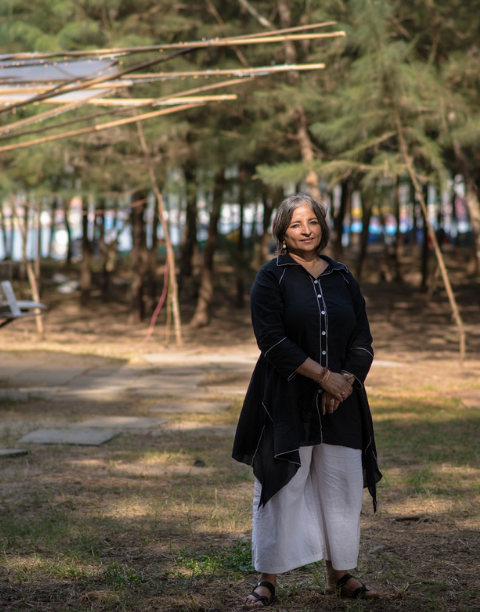
2018
CURATOR
Annapurna Garimella is a Delhi-based designer and an art historian. Her research focuses on late medieval Indic architecture and the history and practices of vernacular art forms in India after Independence. She heads Jackfruit Research and Design, an organization with a specialized portfolio of design, research and curatorial. She is also the Founding and Managing Trustee of Art, Resources and Teaching Trust, a not-for-profit organization that runs a public art library, conducts independent research projects and does teaching and advisement for college and university students and the general public. Her most recent curatorial projects include Vernacular, in the Contemporary (Devi Art Foundation, New Delhi) and Faith: Manu Parekh in Benaras 1980-2012 (Art Alive, New Delhi) and Drawing 2014 (Gallery Espace, New Delhi). Her most recent book is about a collaboration between a Rajasthani miniature painter and expatriate American photographer and is titled The Artful Life of R. Vijay (Serindia, 2016).
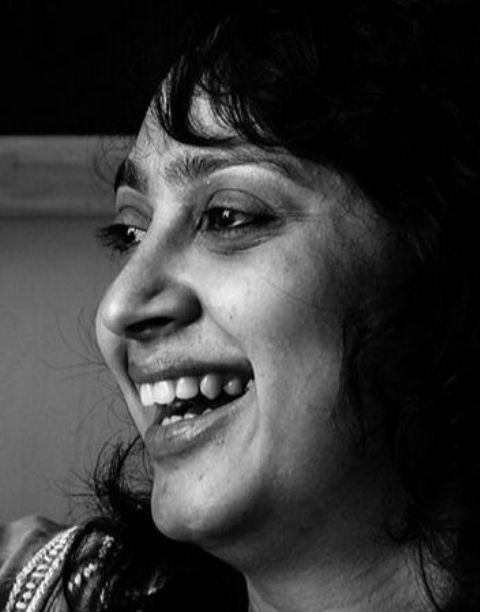
2018
CURATOR
Anuja Ghosalkar is the founder of Drama Queen–– a Documentary theatre company, evolving a unique form of theatre in India since 2015. Her practice focuses on personal histories, archival absences and blurring the hierarchies between audience and performer–– to extend the idea of theatre to create audacious work.
Iterations around form and process, modes of (social) media, sites, technologies, reclaiming narratives on gender and intimacy are critical to her performance making and pedagogy.
As artist-in-residence at Art Lab Gnesta, Sweden she created her debut show, Lady Anandi which travelled extensively across India, and showcased independently in Berlin and Stockholm. Her performances and workshops have been programmed by University of Oxford, Jawaharlal Nehru University, Serendipity Arts Festival, National Centre for Biological Sciences, Forum Transregionale –ZMO, First Post, Kerala Museum, FLAME University among others. Anuja is the co-curator of the international workshop series on Documentary Theatre with her German collaborator––that programmed artists like Boris Nikitin, Rimini Protokoll, Zhao Chuan and Gobsquad. As visiting faculty at Srishti Institute of Art, Design and Technology since 2016, she leads practice based pedagogy. In the past, she was programme officer at India Foundation for the Arts, film programmer for Experimenta and India researcher for University of Westminster. She is an Art Think South Asia Fellow (2017-18) and has written on film and performance for Nang Magazine, Art India, Bioscope, Hakara, Scroll, and Ladies Finger.
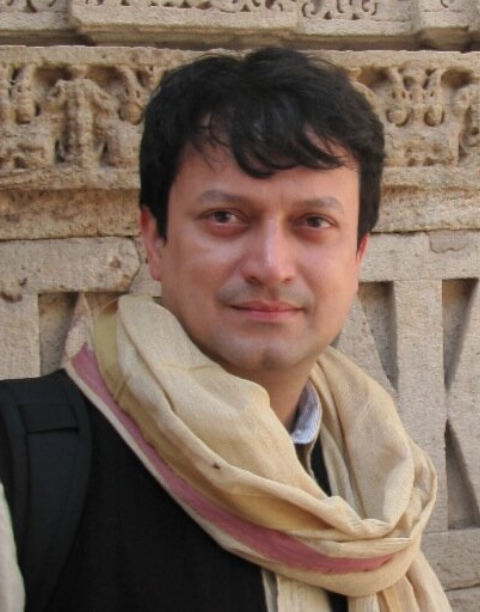
2018
CURATOR
Ranjit Hoskote is a poet, cultural theorist, and curator. He has been pivotal to shaping contemporary art discourse in India, and in registering multiple cultural issues, artistic domains, and moments of history.
In his role as an art critic, Ranjit has authored a critical biography as well as a major retrospective study of the painter Jehangir Sabavala, and also monographs on the artists Atul Dodiya, Tyeb Mehta, Bharti Kher, and Iranna GR. Ranjit was co-curator of Former West: Documents, Constellations, Prospects, Berlin, 2013.
His other curated projects include, The Needle on the Gauge, Contemporary Art Centre of South Australia, Parkside, 2012; Everyone Agrees: It’s About to Explode, Indian Pavillion, 54th Venice Biennale, Venice, 2011.
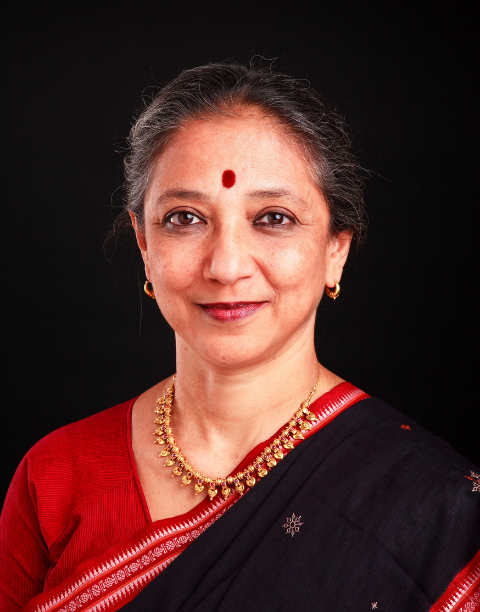
2018
CURATOR
Leela Samson taught at the Sriram Bharatiya Kala Kendra from 1975 – 2005 and privately in Delhi, and choreographed a body of work titled ‘Spanda’, which is known for its innovations in Bharatanatyam. Leela has performed at leading festivals of dance in India and abroad. She had served as Director of Kalakshetra from 2005 to 2012; as Chairperson, Sangeet Natak Akademi from 2010 to 2014; and as Chairperson, Central Board of Film Certification from 2011 to 2015. Leela has also authored books on dance: Rhythm in Joy (1987) and Rukmini Devi – a life (2010) are a select few titles. She is the recipient of the Sanskriti Award in 1982, the Padmashri Award in 1990, the Nritya Choodamani Award in 1997, the Sangeet Natak Akademi Award in 2000, and the Natya Kala Acharya Award from the Music Academy (Chennai) in 2015
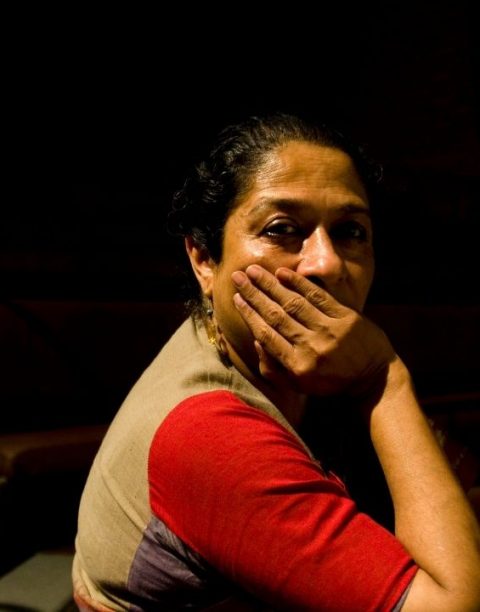
2018
CURATOR
Arundhati Nag is Creative Director of Ranga Shankara (Bangalore), a theatre dedicated solely to dramatics. Only the second such space in India, Ranga Shankara, with its show-a-day policy, has changed the way theatre is viewed and performed in Bangalore. Arundhati has also pioneered a unique Theatre For Children programme called ‘AHA!’ She is the Managing Trustee of Sanket Trust. For over 40 years, Arundhati has also been an actor. She has performed over 1000 shows in five languages. Arundhati also served as David Lean’s Assistant Director for the production of the film A Passage to India (1984). She also assisted and wrote Hindi dialogues for the legendary TV serial Malgudi Days (1987), based on R K Narayan’s novel. She serves on the advisory boards of several national level institutions.
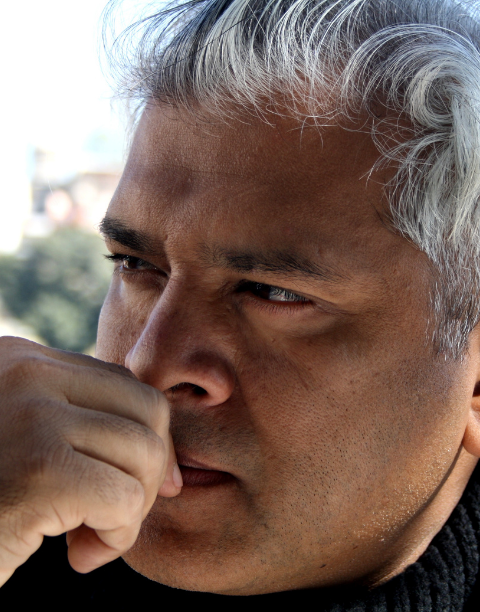
2018
CURATOR
Atul Kumar is the Founder Member and Artistic Director of The Company Theatre. With more than 25 years of stage experience, Atul has dabbled with different languages and forms of theatre and has showcased his work globally. His basic performance training was in the traditional Indian dance and martial art forms of Kathakali and Kalaripayattu in Kerala. He also worked with Compagnie Philippe Genty (Paris) and Sacramento Theatre Company (California). Atul was recently invited by Shakespeare’s Globe Theatre in the UK to direct for their International Theatre Festival. Few of the many grants he has been awarded include the French Cultural Fellowship, Charles Wallace Scholarship and Chevening Fellowship. He has served as a steering committee member of the International Network for Cultural Diversity, Canada and occasionally works in film and television.
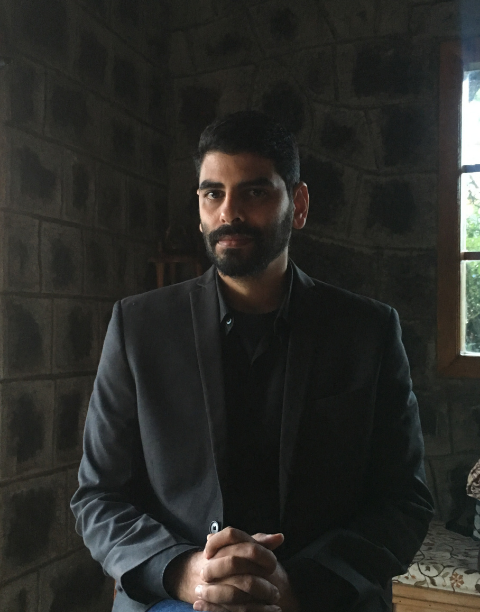
2018
CURATOR
Rahaab Allana is Curator/Publisher of the Alkazi Foundation for the Arts (New Delhi); Fellow of the Royal Asiatic Society (London) and Honorary Research Fellow at the University College (London). He has curated various exhibitions, working in institutions such as The Brunei Gallery (London), Rencontres d’Arles (Espace Van Gogh, France), Museum Folkwang (Berlin), the Rubin Museum (New York), Banco de Brazil (Rio), the Royal Fine Art Museum (Brussels); National Museum (New Delhi); The British Council (New Delhi); the Bhau Daji Lad City Museum (Mumbai). Rahaab is the author of Inherited Spaces, Inhabited Places (2010); and has served as Guest Editor for Marg and the Lalit Kala Akademi. He has written and edited volumes on photography for the Alkazi Collection and Mapin. He is the Founding Editor of PIX, a theme-based photography quarterly and exhibitionary platform.
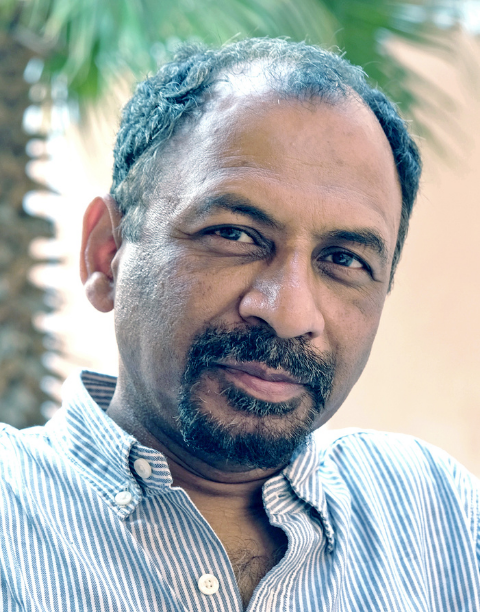
2018
CURATOR
Ravi Agarwal has an interdisciplinary practice as an artist, photographer, environmental campaigner, writer and curator. His work explores contemporary questions around ecology, society, urban space and capital. His work has been showcased widely, including at the Kochi Biennial (2016), Sharjah Biennial (2013) and Documenta XI (2002). He co-curated the ‘Yamuna-Elbe’, an Indo German twin city public art and ecology project in 2011 and ‘Embrace our Rivers’, a Public Art Ecology project in Chennai (2018). Agarwal is also the founder of the Indian environmental NGO Toxics Link, which has pioneered work in waste and chemicals in India. He serves on several high-level policy committees, and writes extensively on sustainability issues in journals and books. He was awarded the UN Special Recognition Award for Chemical Safety in 2008 and the Ashoka Fellowship for social entrepreneurship in 1997
LOGIN to see more
To see all the content we have to offer, login below
OR
Don't have an account?
REGISTER FOR FREE
REGISTER FOR FREE
Registration is completely free, stay connected to Serendipity Arts

